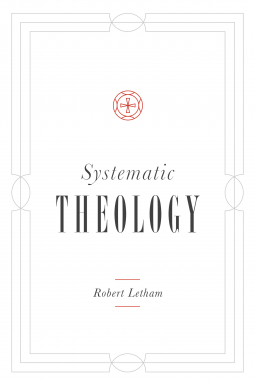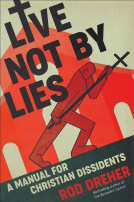
Systematic Theology
by
This title was previously available on NetGalley and is now archived.
Send NetGalley books directly to your Kindle or Kindle app
1
To read on a Kindle or Kindle app, please add kindle@netgalley.com as an approved email address to receive files in your Amazon account. Click here for step-by-step instructions.
2
Also find your Kindle email address within your Amazon account, and enter it here.
Pub Date Nov 19 2019 | Archive Date Nov 14 2019
Talking about this book? Use #SystematicTheology #NetGalley. More hashtag tips!
Description
This single-volume systematic theology seeks to provide a clear and concise articulation of the Reformed faith, rooted in historical teaching while addressing current challenges in the life of the church.
A Note From the Publisher
PDF may not be compatible with all reading devices
Advance Praise
“In this impressive systematic theology, Robert Letham sets before us the ripe fruit of a long career of devoted scholarship. He does so with clarity, confidence, and thoughtful judgment. The result is an elixir drawn from Scripture into which he has carefully stirred ingredients from Patristic orthodoxy, medieval theology, and Reformation and post-Reformation confessionalism. These are judiciously mixed by a theologian conscious that he is writing for the twenty-first century. Systematic Theology is Letham’s personal bequest to the church of Jesus Christ. A magnum opus indeed—which students, ministers, and scholars will find to be a real stimulation to their theological taste buds!”
—Sinclair B. Ferguson, Chancellor’s Professor of Systematic Theology, Reformed Theological Seminary; Teaching Fellow, Ligonier Ministries
“This is a first-class volume, impressively erudite, yet eminently readable. Scrupulously biblical, but at the same time recognizing the value of Christian tradition, it draws extensively, but judiciously, on the insights of the early church fathers, the Reformed confessions, and federal theology, while remaining in constant dialogue with the world of contemporary theological scholarship. The overall organization reflects Letham’s independence of judgment, and the end product is not only a Reformed systematic theology of enduring value but also an encyclopedic reference work for both historical and systematic theology. Unsurpassed in its field.”
—Donald Macleod, Professor Emeritus of Systematic Theology, Edinburgh Theological Seminary; author, A Faith to Live By; The Person of Christ; and Christ Crucified
“Robert Letham has blessed us with a systematic theology that is sure to stimulate reflection, discussion, and deeper understanding of both the Holy Scriptures and the church’s interpretations of them to formulate its theology over the last two millennia. One does not need to agree with every detail of Letham’s magnum opus to realize that here is a treasure house of Christian wisdom on the whole counsel of God that will inform your mind and move your heart and affections to serve your Savior and Lord more single-mindedly and zealously than ever before.”
—Joel R. Beeke, President and Professor of Systematic Theology and Homiletics, Puritan Reformed Theological Seminary; Pastor, Heritage Reformed Congregation, Grand Rapids, Michigan; author, Reformed Preaching
“Robert Letham writes systematic theology as it should be written. His work is marked by a careful dialogue between the Bible and the great creedal and confessional traditions of the church, always aided and abetted by a panoply of great theologians from the past and the present. This work is marked by clarity of thought and ecumenicity of spirit. Here we have the full fruits of a lifetime of thinking theologically.”
—Carl R. Trueman, Professor of Biblical and Religious Studies, Grove City College
“Robert Letham’s Systematic Theology is located within the great tradition of Christian theology, drawing upon Patristic, medieval, Reformational, and contemporary sources. Letham keeps his focus where it belongs—upon the unfathomable richness of the triune God in his being and works. He expounds difficult topics in simple, concise prose, yet without being simplistic. Where Letham occasionally offers fresh formulations of doctrinal topics, he invariably does so in a way that is respectful toward more traditional treatments. Theologians, students of theology, and church members alike will find Letham’s work a wonderful gift to the church.”
—Cornelis P. Venema, President and Professor of Doctrinal Studies, Mid-America Reformed Seminary; author, The Promise of the Future; Accepted and Renewed in Christ; and Chosen in Christ
“A systematic theology written from a classical Reformed perspective that takes a fresh approach and aims to reach an audience not schooled in the technical terminology of the discipline—it is a tall order, but Robert Letham has triumphed with a text that is both readable and reliable. Not only pastors and students but also ordinary churchgoers will grow in their faith as they study a book with such depth and clarity of vision. A masterpiece.”
—Gerald Bray, Research Professor of Divinity, History, and Doctrine, Beeson Divinity School; author, God Is Love and God Has Spoken
“Robert Letham has produced a substantial Reformed systematic theology which is not so much multum in parvo as multum in magno. He starts with the doctrine of God and the Holy Trinity rather than with the necessity and sufficiency of special revelation. In this sense it may be said that he stresses the catholicity of Reformed doctrine and does justice to the place of natural theology in it, reflecting his own Trinitarian expertise. Letham’s style is not only clear but also fair-minded, giving space to alternative views. Letham is good at the big doctrinal pictures and sensitive to the need to drill down at particular points. He judges between central and peripheral issues. He is to be warmly congratulated on this new book.”
—Paul Helm, Professor of Theology and Religious Studies Emeritus, King’s College, London
“Robert Letham writes as no novitiate but as one who has given his life to understanding and explaining the Christian faith, addressing not only theologians and pastors but also the intelligent man and woman in the pew. I appreciate his contextualized treatment of topics, particularly his appropriation of historical figures often absent in confessionally Reformed approaches to theology. One may differ with him here or there, but I appreciate what he brings to many difficult matters, offering correctives to certain tendencies that even good Reformed thinkers might indulge. It is good to have one so thoroughly conversant with the history of the church, as well as the Bible, to write a systematic theology that resonates for our times as does this one. I heartily commend this new work to all. Tolle lege!”
—Alan D. Strange, Professor of Church History, Mid-America Reformed Seminary; author, The Doctrine of the Spirituality of the Church in the Ecclesiology of Charles Hodge and The Imputation of the Active Obedience of Christ in the Westminster Standards
“Robert Letham’s Systematic Theology is the fruit of demanding exegetical work wrapped in a deep appreciation for all the great theology that God has provided for his people through ecumenical creeds and doctrinal standards. It is meant to be faithful to the past and grandly succeeds in that intention. While Letham clearly embeds his theology in properly understood church tradition, he is not afraid to address current theological trends. The text is exceptionally well written, easily comprehended, massively researched, and a drink of cool water for those thirsting for more of God and his word.”
—Richard C. Gamble, Professor of Systematic Theology, Reformed Presbyterian Theological Seminary
“Systematic Theology tells the story of the gospel and brings it to bear on Christian faith and life. This fresh approach is catholic in its scope and distinctly Reformed in its teaching. It is refreshingly nonpolemic, taking the best of the entire Christian tradition with great charity and deep discernment. The fact that I do not agree with everything in the book is part of what makes studying a systematic theology like this so humbling. We are pilgrims on the path to glory, walking in communion with the triune God and longing to see Christ as he is. Letham’s work persuasively and winsomely helps us along this path.”
—Ryan M. McGraw, Morton H. Smith Professor of Systematic Theology, Greenville Presbyterian Theological Seminary
“I enthusiastically welcome the publication of this volume by Robert Letham. Keenly informed by the richness of his own Reformed tradition, Systematic Theology engages the best of Christian thought—Patristic, medieval, Reformation, modern, and contemporary—on a deep and fruitful level. There is nothing parochial about this book; reading it will be a joyous education for students and pastors. It deserves a wide audience among Reformed Christians and beyond.”
—William B. Evans, Younts Professor of Bible and Religion, Erskine College; author, Imputation and Impartation and A Companion to the Mercersburg Theology
“Robert Letham writes with a teacher’s knack for illustration, a preacher’s liveliness and warmth, and a scholar’s breadth—all of these in exemplary service to what certain Reformers called ‘prophecy’: the powerful conveyance of the word of God that enlivens and purifies the saints’ worship. Extended throughout these chapters is the doctrine of union with Christ. Letham’s Protestant account of thesis near the end of the volume, articulated as a perfecting of this union, not only culminates his book-long engagement with Eastern Orthodox authors and traditions but also goes a long way in addressing the need felt by many young evangelicals for thicker connection to early-church formulations and writings. Avoiding easy answers at every turn, Letham’s contagious enthusiasm for the simple genius of the Christian tradition will inspire readers to live, believe, and preach Scripture more earnestly and fully.”
—Andrew Keuer, Professor of Theology and Ethics, Greek Bible College
Available Editions
| EDITION | Other Format |
| ISBN | 9781433541308 |
| PRICE | $50.00 (USD) |
Average rating from 5 members
Featured Reviews
 Floyd J, Reviewer
Floyd J, Reviewer
A new comprehensive (1000+ pages) theology from an evangelical Presbyterian author should be well-received by the church at large.
At 1000 pages, the book is too large to read in its entirety before completing a review - it took three semesters in seminary to read through Augustus Strong’s Systematic Theology which is of similar length. What this review will attempt to do is examine three or four issues that may be of interest to a Wesleyan evangelical reader. The author of the review does not claim to be a theological scholar; but, rather, a pastor with an interest in theology.
The book begins, as a well-written theology must, with a discussion on the existence and nature of God. This includes an examination of the arguments often given for the existence of God. Letham points out these arguments are not likely to provide proof for the unbeliever, but they are “presented to believers to disclose the rationality of what they hold already by faith.” (p. 43). Letham looks at three of the most common arguments:
1. Anselm’s Proof for the Existence of God
(where he spends the most time)
2. The Cosmological Argument
3. The Teleological Argument
4. The Moral Argument
The author takes time to explore the strengths and weaknesses of such arguments as a whole. The discussion, as is the entire book, is well-documented with references to a variety of sources: Biblical, ancient, and modern.
After providing a detailed discussion of the Trinity, the author provides a full discussion on the attributes of God. From there the author moves into a discussion of the Word of God, quickly taking the reader to a discussion of inerrancy, starting with these comments:
_________________
Inerrancy has been embraced throughout the ages. The claim that the Bible is without error on all it pronounces emerged prominently in the nineteenth century. Yet, as Warfield demonstrated, the church down through the centuries held this position, whether explicitly or implicitly. (p. 190)
_________________
The author, thus, has a high view of scripture - appreciated by this reviewer.
As can be expected from a Presbyterian author, this theology has a strong statement on the sovereignty of God’s grace and its “corollary”, the perseverance of the saints. However, only a single paragraph is spent discussing the issues Arminius and Wesley had with perseverance as viewed from a reformed perspective, though he later addresses the warning passages found in Hebrews 6 and 10 under the subtopic of the “the promises of God”. It should be noted that each chapter, including this one, ends with a few suggestions for further reading and a few study questions to guide the reader in a deeper study of the topics discussed.
The other issue that would be of interest to Wesleyan readers would be that of sanctification. “Justification and sanctification are inseparable, yet distinct. … Justification affects our legal status, while sanctification affects our moral condition.” (p. 736) Though the author spends a great deal of time discussing the meaning, timing, and means (“The same means that bring us into the covenant keep us there. There are no extraordinary sanctifying devices. (p. 738), he at no time addresses directly the Wesleyan distinctive of entire sanctification. He hints at this issue as he addresses the “erroneous” view of the Keswick doctrine of sanctification and challenges the modern church’s distinction between “between having Christ as one’s Savior and having him as Lord.” (p. 742). But that is as close as he gets to discussing entire sanctification.
The book ends with nearly 100 pages of reference material:
A limited glossary - which is missing many key terms one might expect in a “Christian” theology text and does not include references to where the material is discussed in the text.
A bibliography - with no easy way to verify its completeness without reading the entire text or going through each individual footnote.
A Name Index
A Subject Index
A Scripture Index
These last three indexes were not included in my review copy, leaving this reviewer with no way to evaluate their completeness or helpfulness.
The book is readable - by scholars, members of the clergy, or laymen. I expect that given the quantity of material available in this book, a digital copy of the book might be more helpful than a paper copy - sadly there is no sign of a digital copy (Kindle, LOGOS, ePub, etc.) being available in the foreseeable future. Though written primarily for a Reformed audience, the completeness of the material covered will make it of value to those coming from a variety of theological backgrounds.
______________
This review is based on a free electronic copy provided by the publisher for the purpose of creating this review. The opinions expressed are my own.
 Rachel D, Reviewer
Rachel D, Reviewer
Systematic Theology by Robert Letham is a solid work designed to fit within the framework of Reformed confessionalism. This is a bigger read than I am use to but none the less I have enjoyed digging in and learning. I would recommend this to anyone looking to have a better understanding of theology.
 Reviewer 550239
Reviewer 550239
This is a solidly written and researched systematic theology that is still imminently readable. Reformed, but still accessible and informative for any evangelical or mainstream believer. I enjoyed the abundance of references to secondary sources, as well as the even handedness and graciousness found in the critique of views with which the author disagrees. As a woman and feminist, I always go straight to the sections on women and feminist theology to get an idea of whether I feel comfortable continuing with an author, and was not disappointed. Solid arguments, direct citing of theologians with whom he disagrees, and a thorough exploration of multiple viewpoints within the Christian faith make for a book which can be recommended to all.
 Sergiu P, Reviewer
Sergiu P, Reviewer
This is a very dense systematic theology, which is great. The author does something very well that makes this book something worth putting on your shelf. First of all, he addresses some questions that I havent seen in other systematics. Second of all, he writes in story-like mode, which makes the reading less dry, especially since he is dealing with such a complex topic.









